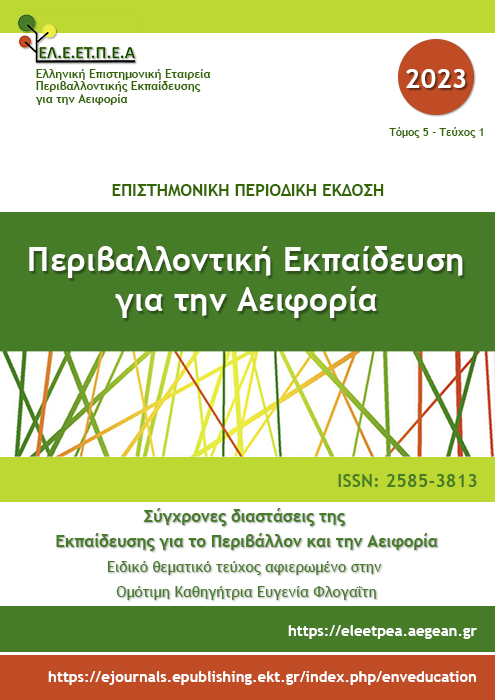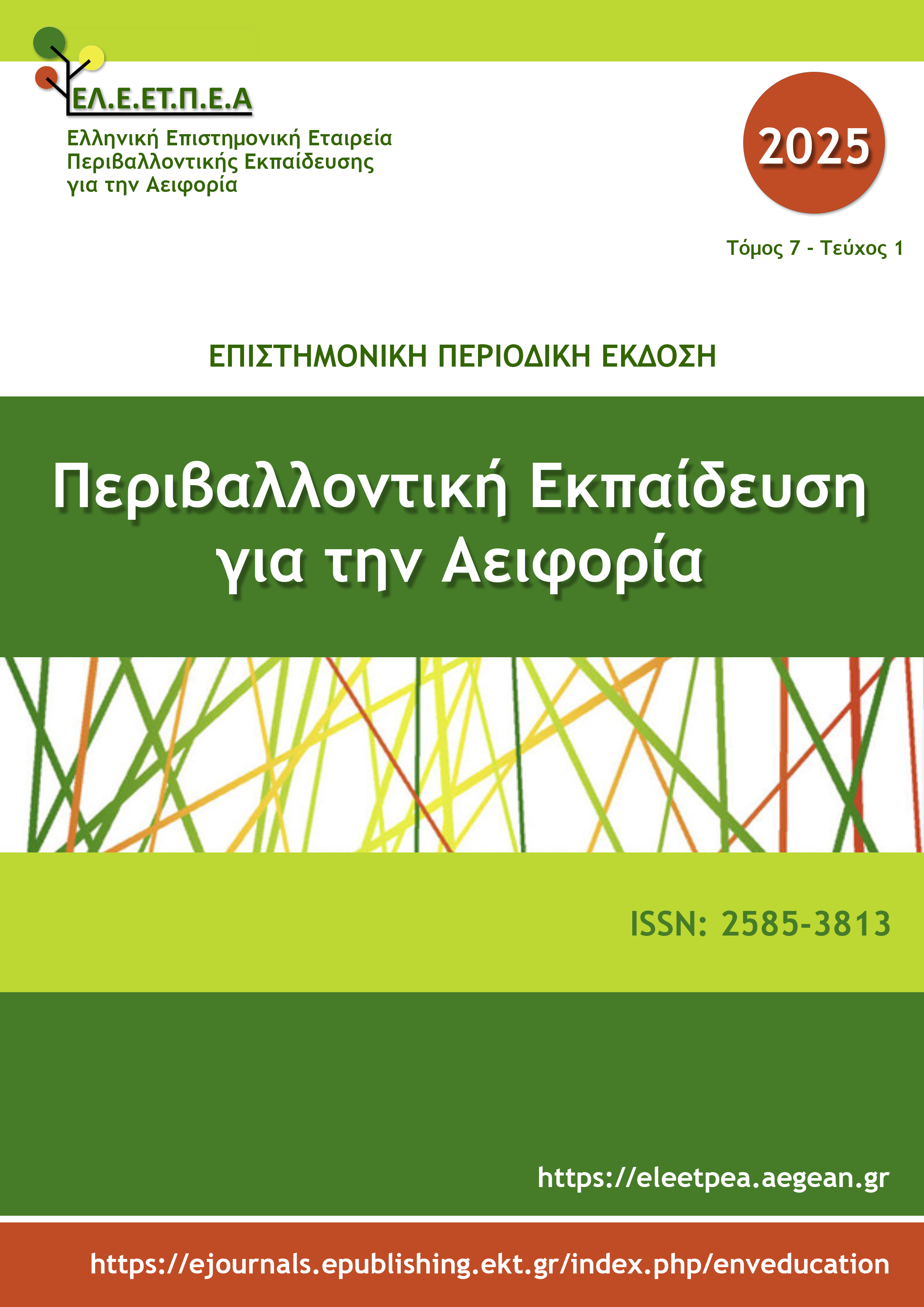Συνεργασία σχολείου και κοινότητας προς την αειφορία
Abstract
Στον βαθμό που η αειφορία αποτελεί ένα συλλογικό όραμα και εγχείρημα, η συνεργασία μεταξύ προσώπων και οργανισμών μιας κοινότητας συνιστά θεμελιώδες στοιχείο για τη δρομολόγησή της. Στο κείμενο αυτό επιχειρείται μια σύντομη αναδρομή στην εξέλιξη της ιδέας της συνεργασίας του σχολείου με την ευρύτερη κοινότητα, αποσαφηνίζονται κεντρικές έννοιες, συνοψίζονται βασικές τυπολογίες και σκιαγραφούνται ενδεικτικά παραδείγματα. Στη συνέχεια, αναλύονται τα κύρια οφέλη, οι δυσκολίες και οι παράγοντες που ευνοούν την ανάπτυξη τέτοιων συνεργασιών.
Article Details
- Come citare
-
Γαβριλάκης Κ. (2023). Συνεργασία σχολείου και κοινότητας προς την αειφορία. Περιβαλλοντική Εκπαίδευση για την Αειφορία, 5(1), 218–233. https://doi.org/10.12681/ees.35783
- Sezione
- Articles

Questo lavoro è fornito con la licenza Creative Commons Attribuzione - Non commerciale - Condividi allo stesso modo 4.0 Internazionale.
Οι συγγραφείς διατηρούν τα πνευματικά δικαιώματα και παρέχουν στο περιοδικό το δικαίωμα της πρώτης δημοσίευσης μαζί με την αδειοδότηση της εργασίας με CC-BY-NC-SA, που επιτρέπει σε άλλους να μοιράζονται αυτή την εργασία με αναγνώριση του συγγραφικού δικαιώματος και την αρχική δημοσίευση σε αυτό το περιοδικό.



